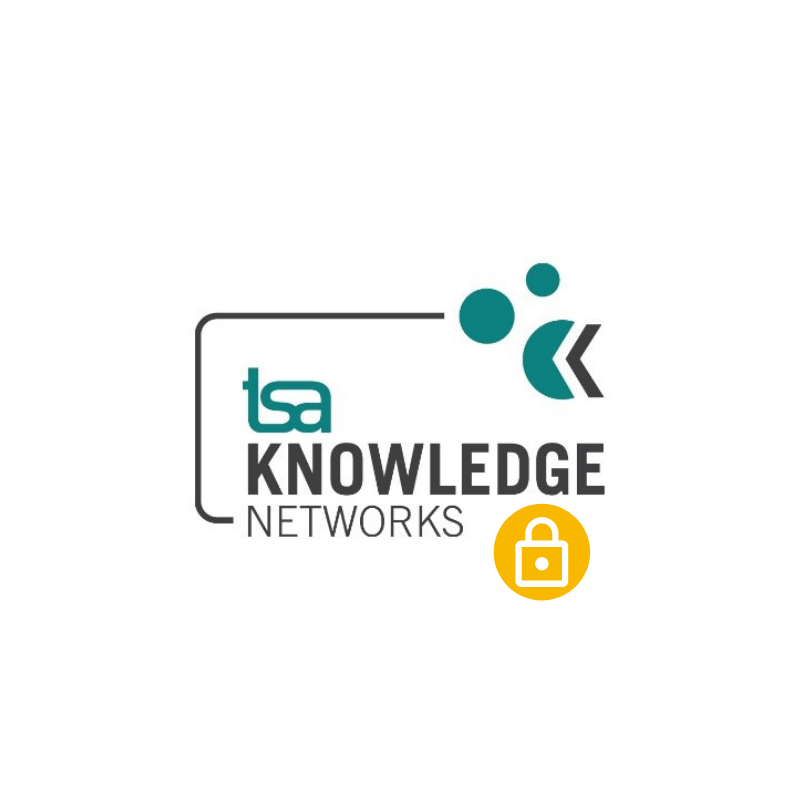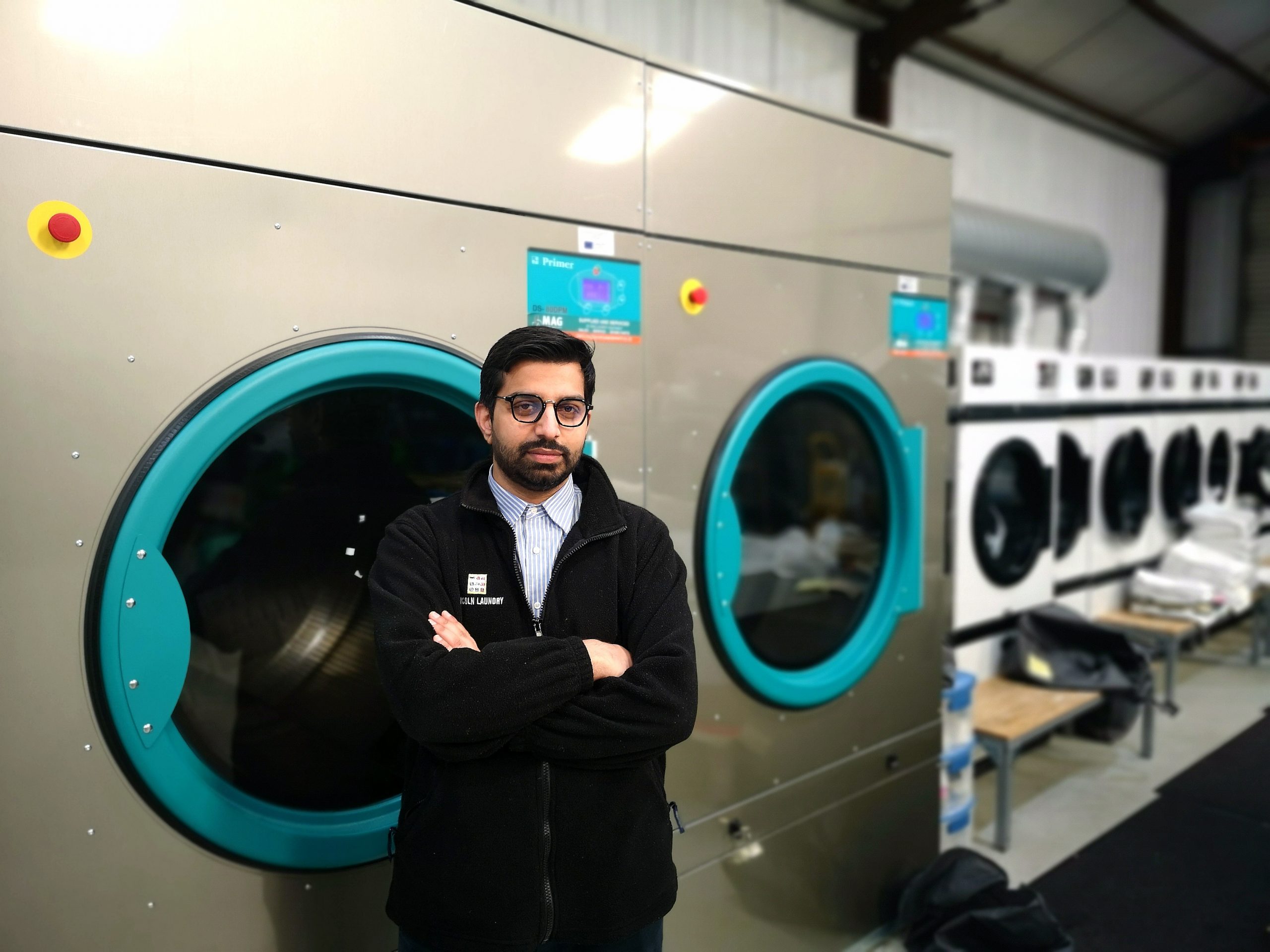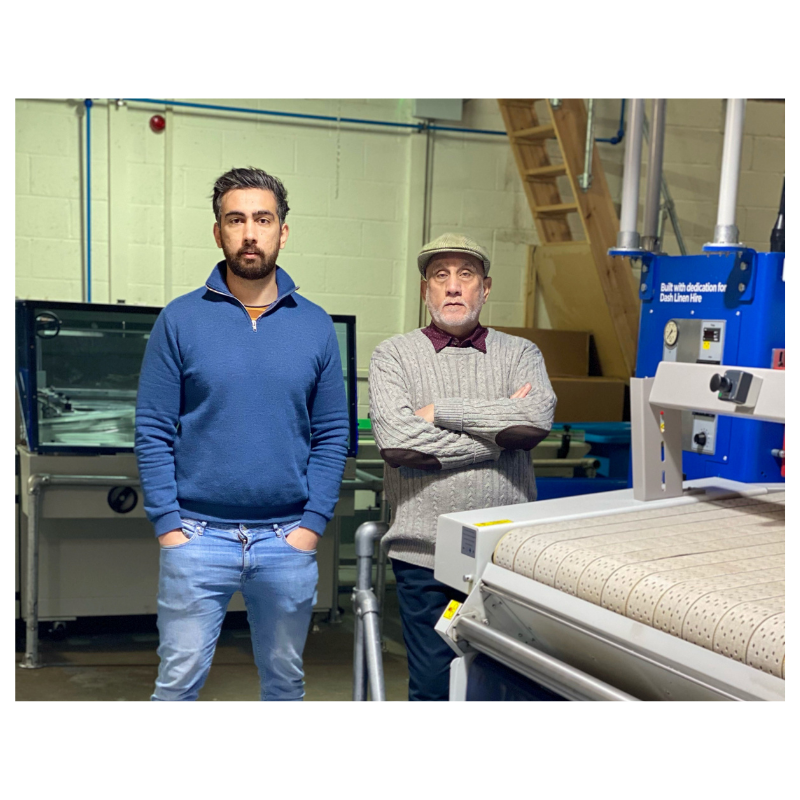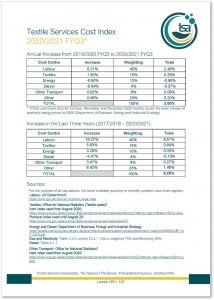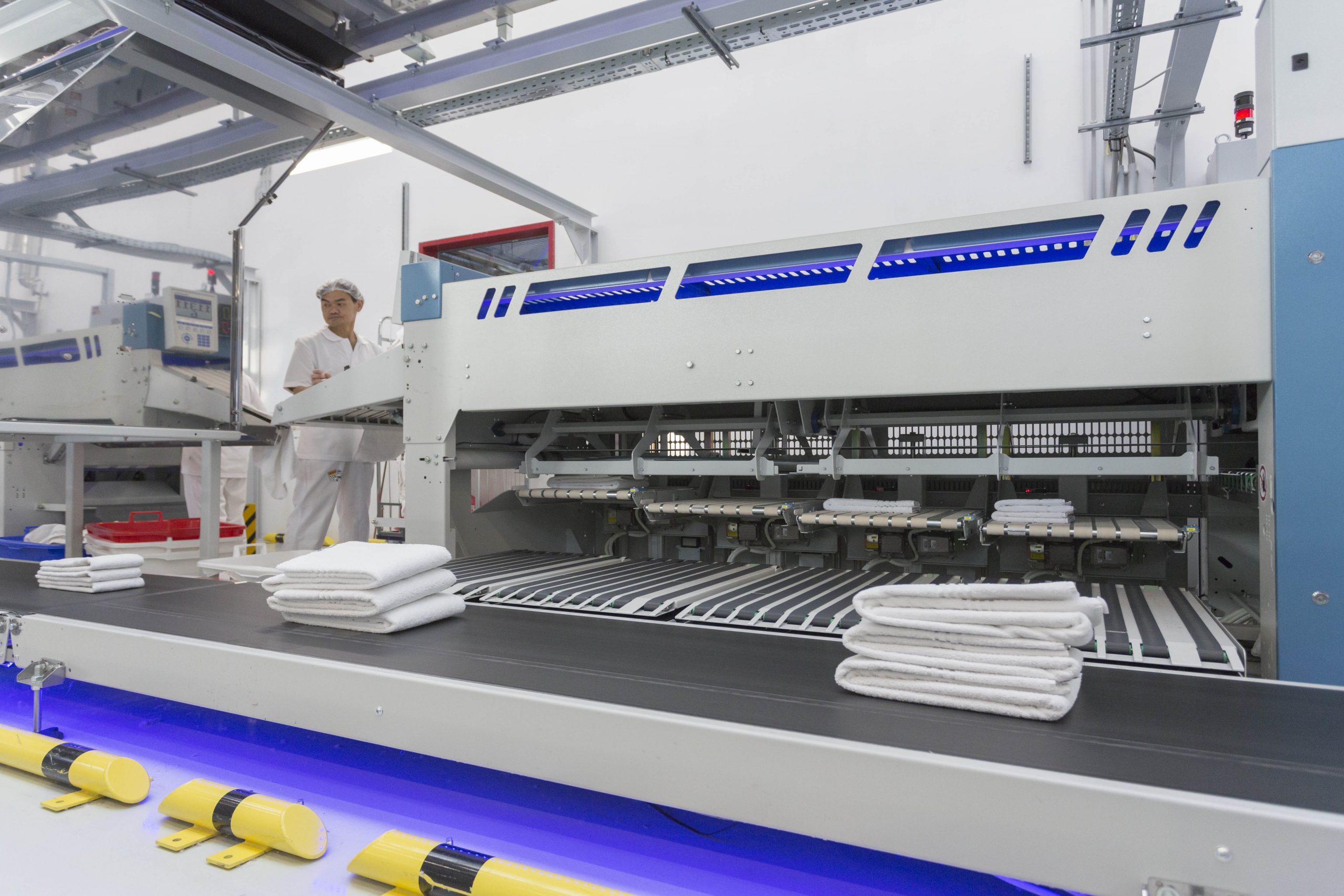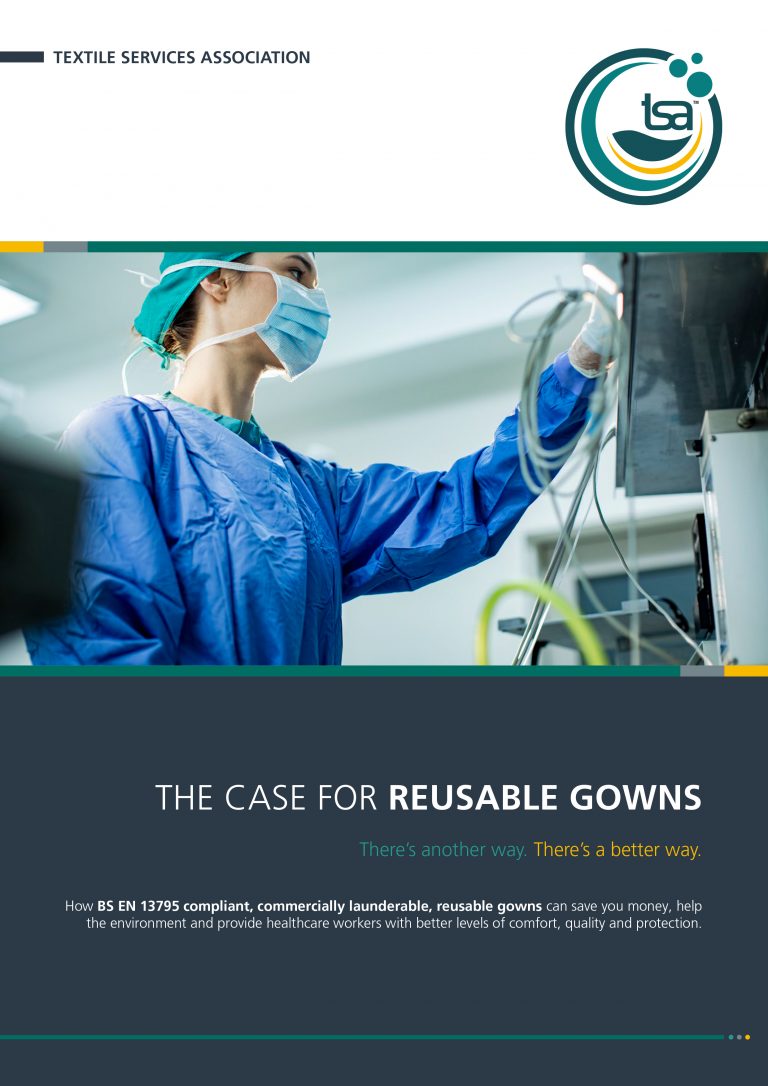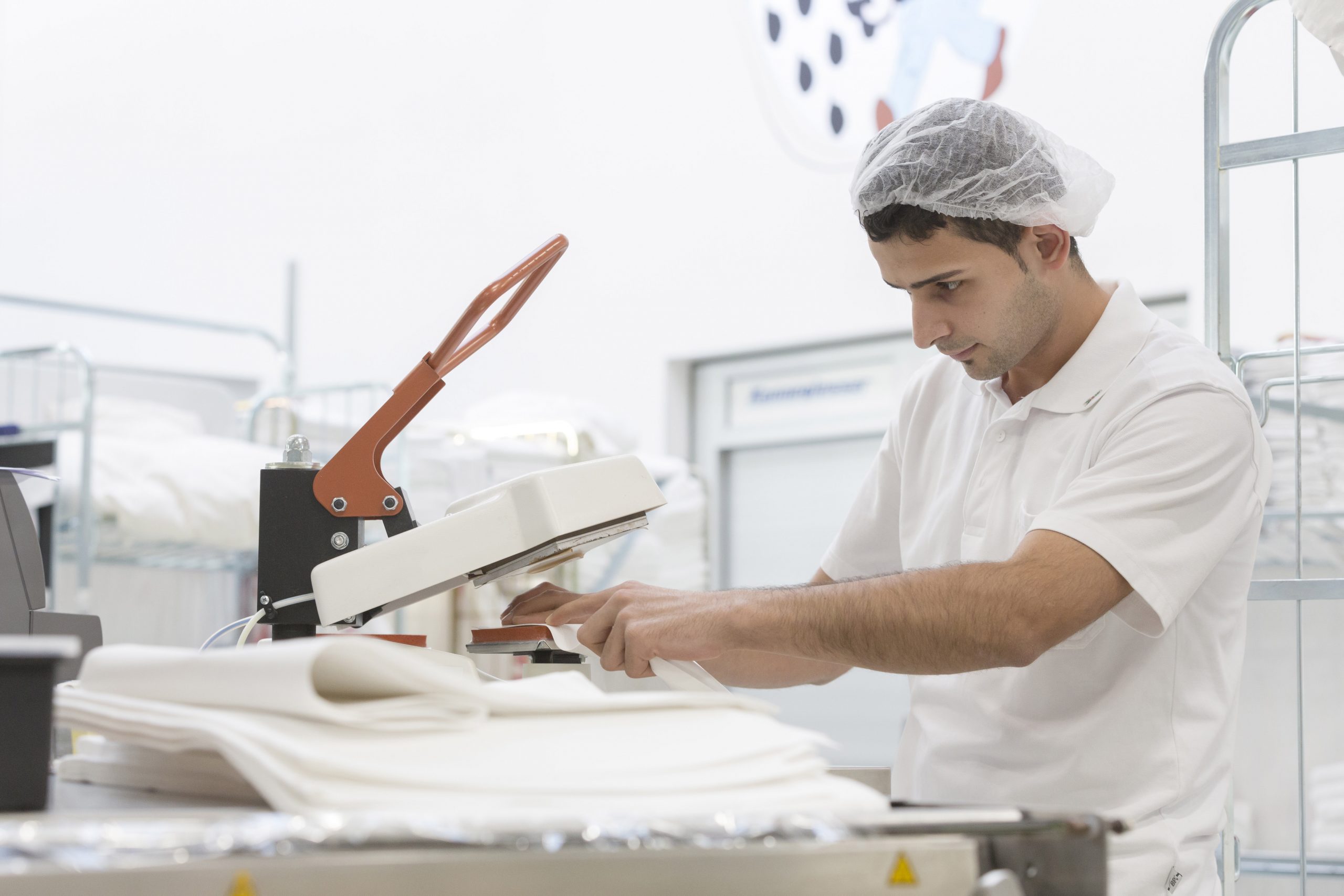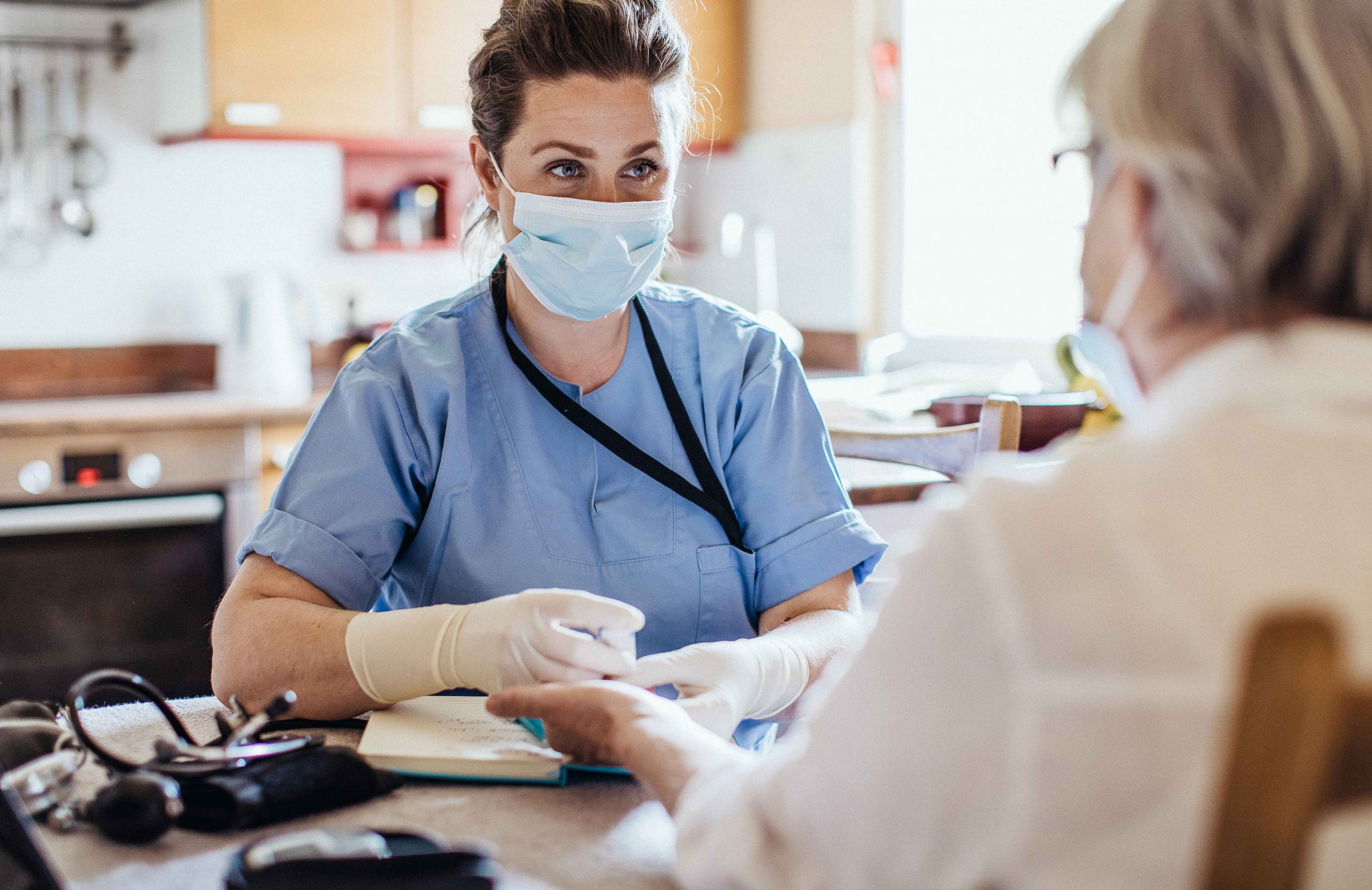The TSA responds to the budget: commercial laundries are left in jeopardy
David Stevens, CEO of the TSA comments on the budget:
Commercial Laundries are Left in Jeopardy
Of course it’s good that the furlough scheme has been extended to September. We’re happy that the Chancellor has also announced a new recovery loan scheme, the investment incentives are a definite plus so there are some positives.
Having said that, we’re very disappointed that the Chancellor didn’t see fit to expand the recovery net. Commercial laundries are still in this enormous black hole outside of the government’s support bubble. We aren’t eligible for business rates relief or for recovery grants, VAT reductions and so the list goes on. We will see minimum wages increase at a time when we will be struggling to pay any wages!
Yet again the service support sector has been totally overlooked despite being part of and dependent on the hospitality industry who have been receiving support throughout the pandemic – it’s simply not fair. This is not a good budget for our industry.
With support we could survive. Without it, commercial laundries, and the 24,000 people they employ, remain in real jeopardy.
If you wish to discuss the above or if you would like any further information, please do not hesitate to contact us on 020 3151 5600 or at tsa@tsa-uk.org.

TSA Knowledge Network Open Day
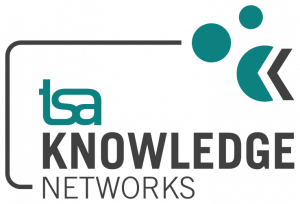
We were delighted to announce the date of TSA’s Knowledge Network Open Day in our January and February TSA CEO updates. 17th March 2021 will be packed full of great topics and panel discussions all through the day. The 2020 KN Open Day was the last in-person event we were able to host before the lockdown. We hope to carry on the same enthusiasm and engagement this year as well. The virtual event provides us with flexible options where we can invite targeted audience for the topic of their interest at specific time slots. We will also have a TSA web landing page where you will see all the details and registration links. We hope to cover topics such as Managing CTWs Safely, Healthcare Processing Standards, Energy Efficiency, Diversity, Apprenticeship etc.
Please share this with your colleagues and teams for whom the topics below may be of interest.
Please note, WebEx has changed their registration form slightly, therefore when you have clicked the registration button below for your chosen session, please ignore the meeting password and click straight on the blue register button as show in the image below. If you have any issues registering, please call Emma on 0754 322 0302.

Day Programme and How to Register:
Time and Topics | Register |
|---|---|
9:15am (20 mins) Opening Session (relevant to all): • Welcome • Technical & Projects Updates • Future projects • Current projects | Register Here |
Time and Topics | Who is it For? | Register |
|---|---|---|
9:45am (60 mins) Health & Safety: • Latest Statistics • CTW Management • TSA Resources • Managing Covid-19 related H&S claims • Q&A Session (TSA Steering Group) | Senior Managers Transport Managers Engineer / Managers Health & Safety Teams Production Managers General Managers | Register Here |
11:00am (60 mins) Driving the Healthcare Standards • Implementing BS EN 14065 • Preparing for certification • New Opportunities | Quality Managers Production Managers General Managers Business Development Managers | Register Here |
12:30pm (40 mins) Circular Economy – End-of-Life Textiles (Recycling) • Why do this project? • TSA Survey results • Logistics (Circletex?) • Marketing the key messages | Senior Managers Quality Managers Transport Managers Marketing Managers | Register Here |
2:00pm (45 mins) Energy Efficiency • Climate Change Targets (Jacobs) • Grant funding / Carbon Trust • Energy audits • Latest technologies | Engineer / Managers Energy Procurement Teams Production Managers General Managers | Register Here |
3:00pm (30 mins) Inclusion and Diversity • Women in the industry • Diversity • Mental Health | HR Directors Change Managers Senior Managers | Register Here |
3:45pm (45 mins) Apprenticeship • Role of TSA’s Trailblazer group • Online training delivery • End point assessment | Senior Managers Training Managers HR Managers | Register Here |
As mentioned, please forward this on to your colleagues and teams for whom the topics above may be of interest. Each session is going to be managed separate to one another. You are free to attend all the sessions. However, the day programme is designed for the attendees to be selective.
We look forward to seeing you there.
If you wish to discuss the above or if you would like any further information, please do not hesitate to contact us on 020 3151 5600 or at tsa@tsa-uk.org.
Lincoln laundry calls for government action; “Laundries are getting short shrift”
“The future recovery is being put at risk” – the government is failing commercial laundries
Lincoln Laundry highlights holes in government support of hospitality industry
Lincoln Laundry, based in North Hykeham, Lincoln, is a family run business employing 15 people that provides high quality laundry services for a range of industries, including hotels, restaurants and catering, education and healthcare, as well as supplying workwear and a range of specialist services. Its experience of the Covid-19 pandemic is that of many commercial laundries, having been denied much of the financial support provided to other industries. “The government says it understands the importance of the hospitality industry, but it’s leaving the businesses that support the industry to their own devices,” says Ahmed Hassan, director of Lincoln Laundry. “And the longer it goes on, the harder it gets.”
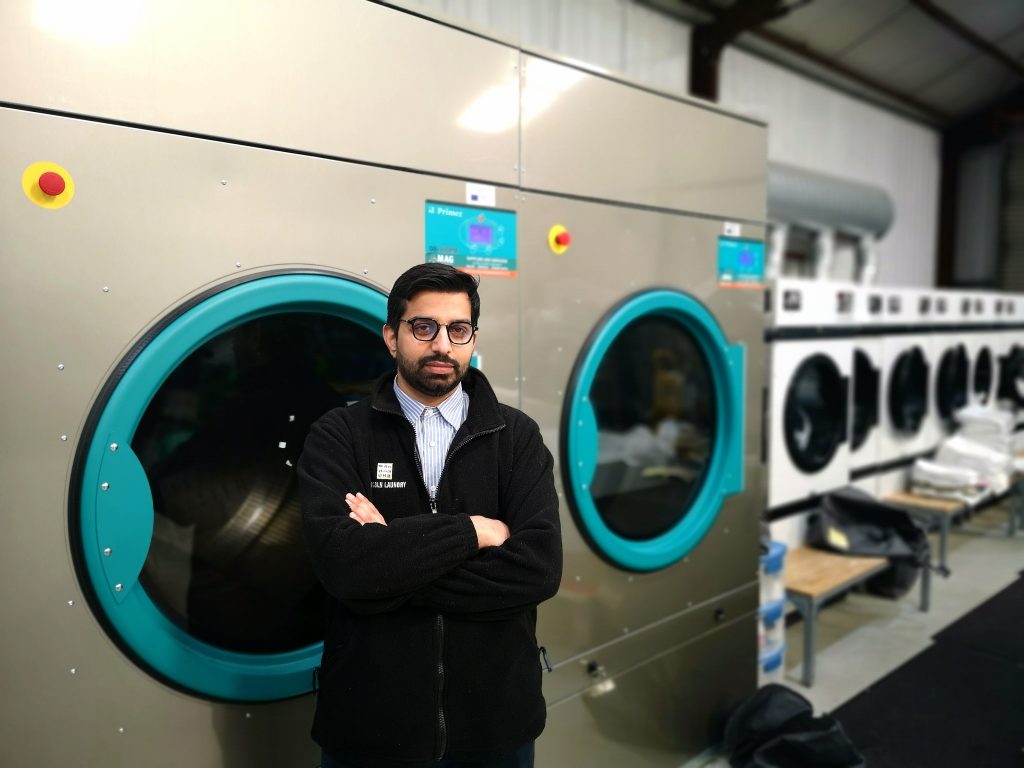
Lincoln Laundry is a member of the Textile Services Association (TSA), which has been increasingly concerned by the reports of its members at the lack of support they are entitled to. With 24,000 people being employed by the industry, decisive action is required to save those jobs. The TSA has been lobbying the Government for more help alongside organisations such as UKHospitality.
Like many of the businesses that have come forward to provide evidence for the TSA’s argument, Lincoln Laundry is a victim of circumstance. “In early March 2020 we had just finished moving into new premises,” says Ahmed. “We needed the extra space to help continue growing the business, although there were expenses with preparing the building and buying new equipment, we were well positioned to have a good year.”
But when lockdown was introduced at the end of March, all their customers closed and business dried up. The move to new premises had put them just over the threshold for higher rates. While Lincoln Laundry has been able to access the furlough scheme to help pay staff, they have been left out of the other measures put in place to help the hospitality industry, like rate relief and grants. “The government hasn’t been looking at the big picture,” says Ahmed. “They’re responding to the loudest voices in the room, but they’re not providing any help to the sectors that support the businesses that are getting financial aid.”
The local authority has done what it can, but “their hands are being tied by the government, with no room to consider cases like us.” With no rates relief, the business has had to go on a payment plan. “Our fixed costs don’t change whether we’re open or closed. With 95% of our customers closed, we burned through our reserves just keeping things ticking over in the first lockdown,” says Ahmed. “No business can hold a full year’s income in reserve! Things looked up during the Eat Out to Help Out scheme in August, but slowed up immediately after.” With the second lockdown started in November, and the post-Christmas lockdown once again shutting its customers, Lincoln Laundry has seen its income shrink to almost nothing.
“The lockdown has also meant a lot of our debtors aren’t able to repay what they already owe, and we’ve seen a few customers go bust already. It all adds to the pressure – we’ve had to put in considerable amounts of our personal savings. It’s been enormously stressful but we’re doing everything we can to ensure we’ll be able to continue supporting our customers when they begin reopening, as well as saving the jobs of our staff,” says Ahmed. “They’re like family to us, some of them have worked here for years and the depth of experience they have is a huge part of our success. They would be impossible to replace.”
Commercial laundries have always played an important (if hidden) role in the hospitality and foodservice industries. With the increased focus on hygiene and cleanliness, as a result of the measures required to control the spread of Covid-19, laundries will be vital for a smooth recovery when lockdown restrictions are able to be relaxed. “We know we’ve got a viable business once things start opening up,” says Ahmed. “But the longer we’re left to look after ourselves, the harder it’s going to be to survive.
“In Scotland and Wales a much higher percentage of laundries are getting help, but in England supply chain businesses like us are being abandoned. Central government sets the rules, and the local authorities’ hands are tied. We did qualify for a small grant in November, but that barely made a dent in our costs, and barely even covered our rates for the month,” says Ahmed. “Even when we do reopen, our customers work on a 60 day cycle to pay their contractors, so it will take nearly two months before we get paid again. Not having a sensible policy in place to support businesses like Lincoln Laundry is going to put the wider hospitality industry in a less stable place at a critical time.”
The TSA has been working with other trade associations to urge the government to provide the same level of help to commercial laundries supplying the hospitality industry that other businesses in the sector have been receiving. This includes amending guidance given to local authorities on discretionary grants, allowing more commercial laundries to qualify for rates relief, deferment of VAT until payback is viable, extending the terms of government loans until laundries can afford to repay them, and making more loans available during the bounce back.
“At the end of the day, we’re just asking for fairer treatment. Many businesses in other industries have been getting huge grants while they haven’t even had to close, but companies like us, in the supply chain, have seen 95% of business stop for a year, and we’re getting short shrift,” says Ahmed. “The government knows how important the hospitality and service industries will be to the future recovery of the country, but as it is they’re creating more problems by not supporting the supply chain that supports the industry. If the supply chain goes under, the hospitality industry won’t be able to function.”
If you wish to discuss the above or if you would like any further information, please do not hesitate to contact us on 020 3151 5600 or at tsa@tsa-uk.org.
“Our business is crumbling before our eyes” – Wimbledon laundry speaks out on what lack of support is doing to the industry
Lack of response is making a tough situation worse, says director of Dash Linen
Dash Linen of Wimbledon, a family business with over thirty years of experience, operates a bespoke, high quality laundry service for a wide range of restaurants in London and the surrounding area. Like many commercial laundries it has been left to cope with the reduction in their business caused by the Covid-19 pandemic with no financial assistance from the government, putting the future of an industry that plays a key role in the hospitality sector at risk. “We’ve been watching our business crumble before our eyes,” says Edward Syed, director of Dash Linen.
The Textile Services Association (TSA) is once again amplifying its concerns about the government’s continued lack of support for businesses within the hospitality supply chain. The vital role commercial laundries play in keeping hotels, restaurants and a range of hospitality businesses running is being overlooked, and could disrupt the expected recovery.
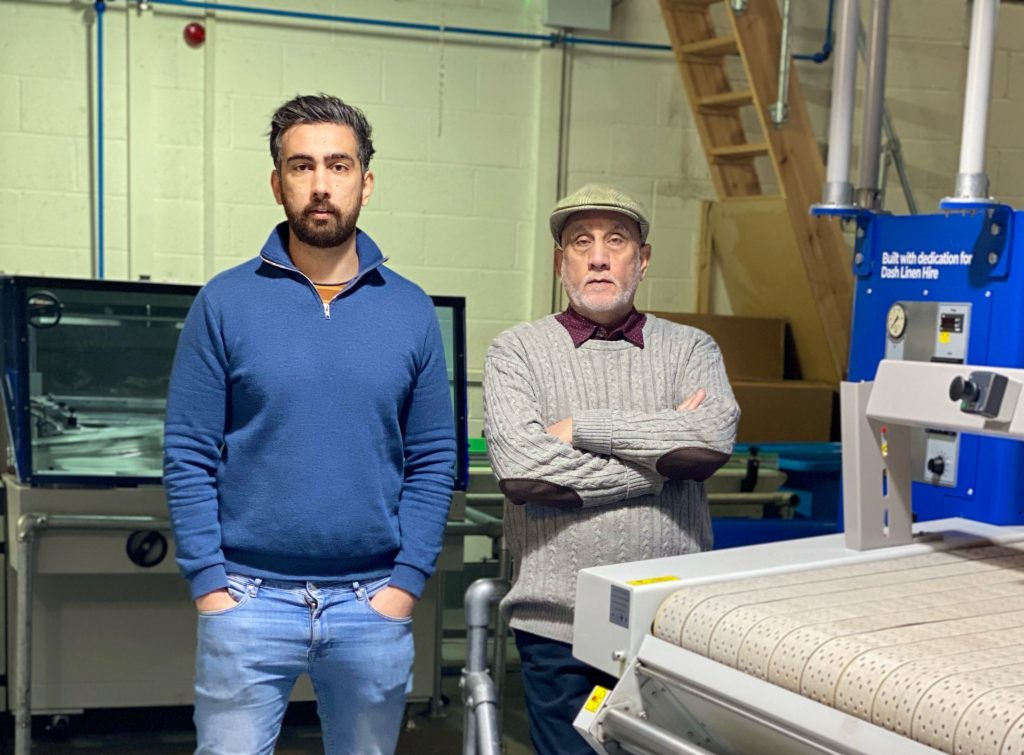
The TSA has been urging the government to provide the same level of help to commercial laundries supplying the hospitality industry that other businesses in the sector have been receiving. That includes rates relief; amending the guidance to local authorities on discretionary grants, so that commercial laundries can be included; deferment of VAT until payback is viable; extending the terms of government loans until laundries can afford to repay them; and making more loans available during the bounce back.
The experience of Dash Linen is typical of the stories the TSA has been hearing from its members since the first lockdown began last March. “The majority of our customers have been closed since the first lockdown,” says Edward. “We’ve lost a few altogether, as they change their operation, and some have gone bankrupt owing us money. It’s a difficult situation for everyone but it’s not being made better by the government’s scattershot approach to which businesses receive help and which don’t.”
The lack of support has already caused staff redundancies. “Before the pandemic we were employing 63 people. We had to make 14 people redundant in June 2020 after our request for grants was turned down, and since then another five have left of their own accord,” says Edward. “We’ve had a very low staff turnover, normally. Some of our staff have worked with us for over 20 years – it’s a very difficult situation. And needless to say, making everyone redundant would put us in an even worse situation.”
During the period where restrictions were eased, Edward noticed a significant drop in business compared to before the pandemic. “We used to be working six days a week. But at that time, despite the hospitality sector opening up, it was down to two.”
Edward thinks the relative invisibility of the hospitality laundry industry might be behind the government’s lack of response. “Very few people know how many businesses rely on commercial laundries,” he explains. “If you look at every piece of linen in a restaurant, or every piece of cloth in a hotel, it will be regularly cleaned by a laundry. But this is a hidden side to these industries. The importance of ensuring that supply companies like us, who are vital to keep other companies running, are receiving the right help isn’t getting through to the right people.
“We’ve built this company up through hard work, and while we’ve never been eager to claim money from the government it’s in situations like this, where almost all of our customers have had to stop operating, that we really need the support – and we’ve just been ignored,” says Edward. “It feels particularly unfair considering the reports of how much money has been going to giant chains that haven’t been particularly affected by Covid-19.”
Without support, it is difficult for companies like Dash Linen to plan for the future. “At the beginning of December 2020 we were thinking that we might at least have an idea of how long it would take to get back to normality, but then we were put into Tier Four and lockdown and it seems like the government is still playing everything by ear, hoping things will somehow just work themselves out.”
Keeping the company going during these trying times has been difficult, and has caused a lot of stress for Edward and his family. “Dad started this business, built it up from nothing,” says Edward. “Seeing something that you’ve invested so much of your life into put at threat through no fault of your own, of following the government’s rules and then being left out to dry, has been really tough for him, and me too.”
Edward hopes that the government looks again at its rules and reconsiders the limits in place for which companies are eligible for assistance. “At a minimum, we need rate relief for at least a year,” he says. “But the council keeps deferring making a decision about it. Similarly, eligibility for support from local authorities is set by how much rates you pay. We moved above the cut-off point by just £1000 at the end of 2019 after investing in a larger building, but it’s marginal and it doesn’t change the fact that hardly any of our customers have been operating for almost a year.
“The hospitality supply chain is being overlooked by the government, and it’s putting a lot of companies at risk. This will only cause yet more problems further down the line: without us, much of the hospitality industry can’t operate. I just hope that the government realises its responsibility to SMEs in this sector before it’s too late.”
For more about Dash Linen visit dashlinen.co.uk
If you wish to discuss the above or if you would like any further information, please do not hesitate to contact us on 020 3151 5600 or at tsa@tsa-uk.org.
Laundry Cost Index: 2020/2021 FYQ3
Laundry Cost Index
Please see our latest published Laundry Cost Index for 2020/2021 FYQ3 below. FYQ3 constitutes data for October, November and December 2020 months as per the latest release of quarterly energy prices by BEIS (Department of Business, Energy and Industrial Strategy). Additionally, please note the previously used indexes for Textiles and Other Transport have been discontinued and replaced with new indexes due to recent methodology changes by the Office for National Statistics.
Please see the Previous Annual Increases below for comparison:
If you have any queries or would like any further information, please do not hesitate to get in touch with us.
T: +44 (0)20 3151 5600
E: tsa@tsa-uk.org
‘KILLER CASH FLOW’ COULD DESTROY UK LAUNDRIES AND COST 24,000 JOBS
Final nail in coffin as government continues to ignore hospitality laundries
“Dire.” That’s the current state of the commercial laundries servicing the hospitality market, according to the Textile Services Association (TSA). 24,000 jobs in hospitality laundries are on the line and, despite repeated calls for help, the government has done little or nothing.
Now there’s a new fear – killer cash flow. It works like this: in March, the hospitality market starts opening up with the so-called bounce back. Laundries come back on line to service hotels, leisure centres and restaurants. In March and April the laundries have work, but they also have costs, from day one: wages, fuel, transport and so on. But at this stage, no money is coming in. Why? Because the accepted model for most hospitality laundries is to invoice at the end of month – and then they typically get paid on around 60 days.
And that’s the point at which many hospitality laundry businesses will get the final nail in their coffin.
“Government inaction is driving the industry into the ground,” says David Stevens, CEO of the TSA. “We’re not asking for special treatment, we just want the support that other businesses are getting. Rates relief would be a start. Amending the guidance to local authorities on discretionary grants, so that we can be included. Deferment of VAT until payback is viable. Extending the terms of government loans until we can afford to repay them, and making more available during bounce back.
“Cash: that, in a word, is what we need.”
The TSA fought long and hard to get laundries included in the government support schemes. It finally achieved success when it was announced that companies that supplied the hospitality sector, and relied on it for most of their business, would be eligible for discretionary grants from the local authority. “Now that ‘success’ feels like a kick in the teeth,” says Stevens. “We’re just not getting anywhere. Virtually every laundry that has applied has been turned down.
“Yet again our industry is being ignored. We are part of the hospitality sector and will not survive without support. What’s it going to take to get some action? Another 24,000 people on the dole?”
If you wish to discuss the above or if you would like any further information, please do not hesitate to contact us on 020 3151 5600 or at tsa@tsa-uk.org.
GOVERNMENT GREEN LIGHT FOR REUSABLE PPE GOWNS COULD SAVE NHS £1BN+ A YEAR
TSA welcomes DHSC decision after months of lobbying, but warns it’s a ‘slow burner’
After months of lobbying by the Textile Services Association (TSA), the Department of Health and Social Care has confirmed that reusable gowns are now part of its official PPE strategy. The TSA has long argued that reusable gowns make economic sense – they can be laundered and reused up to 75 times and the difference in cost is, as the DHSC itself says, ‘modest’. At the same time reusable PPE gowns are far better for the environment. While disposable gowns are creating, each year, an estimated 45 million tonnes of clinical waste that needs to be burnt, reusable ones are the far more sustainable option as they can be recycled at end of life.
“Everyone we spoke to in the cabinet office, civil service and government agreed with our argument, but they didn’t take it anywhere,” says David Stevens, CEO of the TSA. In early October, the DHSC published its Personal Protective Equipment (PPE) Strategy, in which it mentions reusable PPE on several occasions. However, as Stevens points out, they didn’t exactly shout it from the hilltops – and the policy of sourcing and using disposables has continued, despite recent media furore about the contracts involved.
Now, however, Stevens has had the policy on reusable PPE gowns confirmed at the highest level. “A spokesperson from NHSI England acknowledged that we are pushing at an open door – the problem is, there still doesn’t seem to be much progress. On the plus side, the DHSC says it wants to see an increase in reusable gowns and talks about developing a comprehensive business model, with commercial laundries central to delivering the strategy. It’s also working with the UK textile industry and universities on developing the use of new materials, such as graphene.
Stevens adds, “While the news that the DHSC is so supportive of reusable PPE gowns is very welcome, it comes with a health warning: this is a slow burner and, going by past experience, could take a long time to come to fruition. That’s why the TSA is going to keep on pushing.”
The TSA is now having regular calls with the NHS Improvement team to drive the use of reusable PPE gowns further up the agenda. Currently, as part of the DHSC official PPE strategy, NHS England is piloting the use of reusable gowns with twenty providers, with sixty more waiting to join the pilot, working alongside laundry suppliers to increase the proportion of reusable gowns in the system and reduce waste of single use gowns.
Meanwhile, the TSA has published a short guide on multi-use PPE gowns, detailing how the reusable gowns could be made in the UK (currently most disposable PPE comes from overseas) and cleaned in commercial laundries to ensure they are safe for reuse. The Guide, ‘The Case for Reusable Gowns… there’s a better way’, explains the difference between disposable and reusable gowns, and gives stark statistics – including the potential saving to the NHS of £1.2bn per year. The Guide is available to download from here.
If you wish to discuss the above or if you would like any further information, please do not hesitate to contact us on 020 3151 5600 or at tsa@tsa-uk.org.
GOVERNMENT INACTION LEAVES COMMERCIAL HOSPITALITY LAUNDRY INDUSTRY ON ITS KNEES
TSA warns that lack of support puts thousands of laundry workers’ jobs at risk
Rishi Sunak has forgotten the hospitality laundry industry yet again. Still no support. Despite determined lobbying by the Textile Services Association (TSA) including, most recently, an open letter asking – pleading – the chancellor to think again. The commercial laundries that service the hospitality sector, employing around 28,000 people, have been left to sink or swim.
The TSA, which represents the UK’s commercial hospitality laundry industry, is once again calling on the government to help before many of its members are forced out of business for good.
“The government is not learning,” says David Stevens, CEO of the TSA. “Or perhaps it doesn’t care. The first national lockdown nearly destroyed the commercial laundries who service the hospitality industry. They had virtually no help from the government as they were deemed ineligible for rate rebates and hospitality grants, so apart from the furlough scheme, which is ending, they were left on their own. The new Job Support Scheme won’t help, either – with business volumes down by 70% or more, hospitality laundries can hardly afford to pay staff to work, let alone pay them NOT to work.
“Our industry is on its knees, and the government is just turning its back on us.”
The situation hospitality laundries find themselves in is aggravated by the fact that, encouraged by the government, many borrowed money to see them through the summer. Money which they have to pay back at some point. But Covid-19 is still here and their business volumes are dropping again as local lockdowns are getting more widespread.
The TSA has called for extensions to the furlough scheme or grant support for those businesses that supply the hospitality sector in lockdown areas. “Without help, they will go under,” says Stevens. “Tens of thousands of jobs are at risk if the government does not take immediate action to support our industry.”
If you wish to discuss the above or if you would like any further information, please do not hesitate to contact us on 020 3151 5600 or at tsa@tsa-uk.org.
Could ‘clean’ healthcare uniforms be COVID-19 carriers?
TSA backs calls for research into textiles and infection control; ‘PHE should revise 2007 guidelines’
The Textile Services Association (TSA) is backing urgent calls for research into the ability of infectious diseases, including COVID-19, to survive on linen and clothing, even after it is washed in a domestic setting. It’s especially concerning because many nurses and care home workers wash their uniforms at home – and there is evidence that some infection outbreaks in healthcare settings have been caused by inadequately managed washing equipment. The TSA is also calling for Public Health England to revise guidelines the Association believes are outdated.
Currently Public Health England recommends uniforms are washed in commercial laundries, but it is not compulsory. Furthermore, it says that domestic washing should be adequate. However, this is based on reviews published in 2007 – and experts are saying that, especially in the light of the COVID-19 pandemic, it’s high time for proper research that will give accurate guidance on the matter. There is also increasing consensus within the research community that the infrastructure, processes and quality standards in a commercial laundry mean they are much better equipped to deal with all the risks associated with infectious textiles than is possible in a household or on-premises laundry setting.
“It can’t be right to base guidance on reviews that were done 13 years ago,” says David Stevens, CEO of the Textile Services Association. The TSA is currently conducting a survey of care home owners to find out about their current practices. The Association is also working with the DHSC, who have agreed to review the infection control procedures around laundry. “They have said they would welcome a revised guidance document that can be issued to the care home sector,” says Stevens.
“When it comes to best practice for health workers who are laundering their uniforms at home, the PHE guidance is onerous,” Stevens adds. “It says that workers should transport the uniform in a disposable plastic bag, and wash at the highest temperature it can tolerate, in a separate half load, and it should be ironed or tumble dried. It’s a lot to ask of a tired worker just home from a stressful shift.”
Previous research by Dr Katie Laird of De Montfort University (DMU) found that healthcare workers were not always adhering to these policies when laundering at home, underlining the risk of inadequate decontamination. It showed 44% of workers were laundering their uniforms at temperatures below 60°C, and 40% laundered them with other clothing items.
The most recent paper on the subject was published in August 2020 by Dr Laird and her colleague, Dr Lucy Owen from the Infectious Disease Research Group at DMU. They point out the need for even more rigorous infection control, following the emergence of COVID-19, and underline the lack of empirical research into the role of textiles as potential fomites (infection carriers) in healthcare environments. Furthermore, they reference a number of studies that indicate that microorganisms can survive on textiles for extended periods of time, and case studies that link outbreaks with inadequate washing processes and infrastructure in on-premise healthcare settings. This is important because it underlines the infection control benefits of the measures taken in a commercial laundry, compared to those in a domestic or on-premise setting.
The article, called The role of textiles as fomites in the healthcare environment: a review of the infection control risk, is available to download here.
“Given what the experts are saying, surely we should be erring on the side of caution and ensuring that healthcare workers’ uniforms are washed in commercial laundries, with the appropriate hygiene certification,” says Stevens. “We will be lobbying the government and PHE to fund research to establish the facts, or at the very least to revise the current guidelines.”
If you wish to discuss the above or if you would like any further information, please do not hesitate to contact us on 020 3151 5600 or at tsa@tsa-uk.org.

